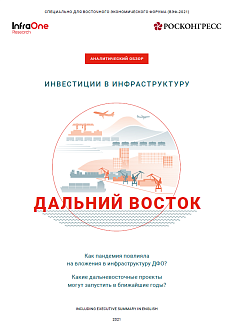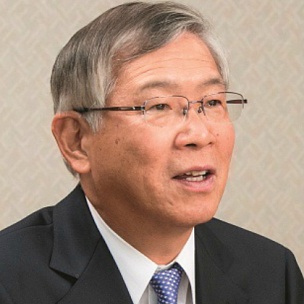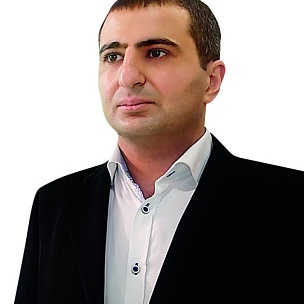More and more, Russia and China are declaring joint interests in politics, the economy, technological development... Is the relationship more of a partnership or a competition? Why is it so hard for us to negotiate with the Chinese? To find the answers to these questions, we talked to Dr Sergey Luzyanin, Professor, Director of the Institute of Far Eastern Studies of the Russian Academy of Sciences, and author of the book Russia and China: Creating a New World.
Impossible to say which country is senior partner
— How important are Russia and China for each other, economically speaking? Is it possible to label one of them the ‘younger brother’?
— Based on the current state of Russian—Chinese strategic cooperation, in which the economy plays a very important part, it is impossible to say exactly which is the senior partner and which the junior.
We are talking about a relationship between two great powers, each of which has its own unique advantages in certain areas, providing a balance of about 50/50.
For example, in the military—strategic sphere, in space, in nuclear power, and in creating one-of-a-kind military aviation engines, Russia has set a bar that China has not yet reached and is unlikely to attain in the near future. On the other hand, China’s purchasing power parity today is greater than that of the US. That is, it can be said that, in comparison, both the US and the European Union are China’s juniors.
— In which areas in particular do our countries need each other?
— Russia is an important supplier for China. Of course, this includes energy, but it’s not just about oil and gas pipeline megaprojects. There are also new ground-breaking projects for the production of liquefied natural gas (Yamal LNG). There is also active cooperation in the construction of future high-speed railways. Other areas of collaboration have emerged: space exploration, the development of nuclear energy, and the supply of certain types of agro-industrial products.
In turn, advanced high-quality technologies are arriving in Russia from China. China is also important for us as a potential investor in future projects. For example, advanced special economic zones in the Russian Far East have proved very attractive to Chinese investors.
Our countries are, after all, neighbours along the great Amur River (Heilongjiang). New roads have been built. The Nizhneleninskoye— Tongjiang railway bridge will open soon. Moreover, while in 2000 economic cooperation was mainly to be found in border areas, today that’s not the case at all. For example, the Volga—Yangtze project was started in 2013 to establish cooperation between the Volga Federal District and regions in the upper and middle reaches of the Yangtze River. The bilateral years (2018–2019) of Russian— Chinese interregional cooperation are designed to give cooperation a boost by linking Russian regions and Chinese provinces with hundreds of contracts and projects of various types.
At the Eastern Economic Forum, the focus is not on major state projects, but on interregional cooperation and the development of new priorities and sectors. It is no coincidence that this year President of the People’s Republic of China, Chairman and General Secretary of the CPC Central Committee Comrade Xi Jinping will come to Vladivostok. Both he and Vladimir Putin attach great importance to qualitatively changing their trade and economic agenda so that it is not reduced to two or three megaprojects, but covers thousands of undertakings.
What the US—China confrontation on the global market means for Russia
— Nevertheless, despite our political rapprochement, the United States remains China’s largest economic partner...
— Under Hu Jintao, China really believed that, for the sake of economic development, it was important to refrain from any, even the slightest, confrontation with the United States. In the last three or four years, this position has undergone radical change. For China, money and the economy are fine and all, but the main national interest lies in confronting the global hegemony of the US, which is the main threat. Moreover, it was the Americans who officially labelled China and Russia their main opponents.
BACKGROUND
Increase in trade
Trade between Russia and China from January to April 2018 increased 27.3% when compared to the same period last year, reaching USD 31.1 billion, according to statistics from the General Administration of Customs of China. Of these, China exported USD 13.9 billion in goods and services and Russia exported USD 17.2 billion. And these numbers will grow. The Chinese Ministry of Commerce has announced that, by the end of the year, trade between Russia and China could rise to a historic high of USD 100 billion. The Russian Ministry of Economic Development agrees with this assessment.
Trump’s protectionist moves are only the first steps to which China will respond, and trade turnover will decline somewhat, while still being substantial — almost USD 700 billion. Donald Trump is introducing tariff sanctions because the Chinese sell USD 370 billion more in goods to the US than the US sells to China. Surprisingly, the structure of Chinese exports is made up of electronics and machinery equipment. The largest American export is soy. This is the result of a skilful Chinese policy, and it will take the American president more than one blow to knock it out. The country faces a long and exhausting struggle.
— Can Russia benefit from this confrontation?
— The Chinese have not yet used their main weapon; it is very dangerous and double-edged. I’m talking about the money invested by the Chinese Government in American securities, a total of USD 1.1 trillion. Logically, they will gradually and carefully discard assets and transfer money to other investment projects and securities. For Russia this opens up an enormous market: even if a tenth of this trillion is invested in Russian projects, it will be an entirely new investment resource. And the Chinese really have no place else to go: Europe doesn’t trust them very much, and Russia is close by and more similar politically. Our countries have a common rival — the United States. This is not said out loud, but Xi Jinping and Vladimir Putin are aware that neither Russia nor China will be able to stand up to the Americans alone.
Our countries’ strategic interests in this respect fully coincide
— Your words suggest that a new geopolitical union is growing to confront the West?
— Our countries’ strategic longterm interests in this respect fully coincide. However, Moscow and Beijing do not want to return to the classical alliance between Stalin and Mao Zedong, either. In general, the era of classical military alliances has passed. Today, cooperation in the format of strategic partnership is more common. We support each other in the Security Council; we have a shared position on Syria and the Korean Peninsula. The meeting in Singapore between Kim Jong-un and Donald Trump was worked out by Beijing and Moscow two or three months before the meeting. Although the US President took all the credit, in fact, the North Korean leader flew to consult with Xi Jinping twice and met with Sergey Lavrov twice [Minister of Foreign Affairs of Russia — Ed.] before the meeting.
Russian—Chinese cooperation has reached the global level. The Chinese have the Belt and Road initiative, and Russia has the Eurasian Economic Union and the Shanghai Cooperation Organisation. These projects need to be combined.
The leaders of these associations believe that this enormous area — Eurasia — should not be American. Although even here a problem arises: the Chinese would like to adapt it to suit their projects and Russia wants it for theirs. Kazakhstan also has its own interests. Consensus is very important here. Negotiations with China are always extremely difficult.
— Why do you think that is?
— The fact is that, in the thousandyear-old mentality of China, the concept of absolute equality and compromise has not been laid down. Over 5,000 years, 12 empires and 14 dynasties have been built on subordination and hierarchy, and this remains in their subconscious. Therefore, it is easier to reach a compromise with Europeans, whereas the Chinese perceive compromise as a defeat. That’s why negotiations on large oil and gas projects have been taking 15 years. Agreements were reached in the end, but it took an incredible amount of effort, literally blood and sweat.
— How much is our relationship influenced by the sanctions imposed on Russia by the US and the EU?
— China is an integral part of the international financial system. Moreover, Xi Jinping has declared a policy of openness and transparency in the financial and economic sphere: no isolation or protectionism. Consequently, Chinese companies cannot ignore the sanctions imposed on our country. However, at the same time, entrepreneurs use their ‘Chinese’ tricks, which are difficult to prove in Western courts. Basically, Chinese business is on our side, although it observes the sanctions imposed by the West.
38 framework agreements
have been concluded between Russian regions and the Yangtze provinces within the format of Volga—Yangtze as of July 2018. These agreements cover trade, economic, scientific, technical, and humanitarian cooperation. The Republic of Bashkortostan, the Republic of Mordovia, the Chuvash Republic, and Samara Region made the most use of the project, each concluding four agreements. On the Chinese side, Sichuan, Anhui, Hubei, and Chongqing were the most active participants.
Demographic expansion is not needed to benefit economically
— What other difficulties do Russian companies face when entering the Chinese market?
— One of the main problems is that Russian entrepreneurs believe that, once the contract is signed and the goods have crossed the border, that’s it, the work is finished. In fact, that’s just the beginning, because in China, Russian products lose their name: large Chinese companies immediately appropriate them for themselves and distribute them through their dealer networks. Thus, in terms of its PR and image, Russia is disappearing.
We need our own dealer network in China to bring Russian goods to the Asian consumer.
Another big set of problems is associated with a poor knowledge of China’s legal system. Russian state corporations know the law perfectly well, but most medium and small businesses, which have a fount of unused resources, can only hope for a chance. We have begun to develop a road map to explain the main problems that an entrepreneur may face in China, but for now the demand is limited. We need a more ambitious and systematic approach.
— Returning to the interests of China in the Russian Far East, how realistic is the scenario of a Chinese demographic expansion in Russia?
— This is an old myth that arose in the 1990s. Then there really was an uncontrolled flow of Chinese immigrants, not to the Far East itself, actually, but in transit to Moscow, St. Petersburg, and further on to Europe. And even then, the figures, as counted by sociologists, did not exceed 450,000–600,000 people a year. Now, the situation has changed drastically. First, rigid quotas for foreigners were introduced. Second, after the scandalous closing of the Cherkizovsky Market in Moscow, where billions were in circulation, the spontaneous shadow market of Chinese products was completely destroyed.
As for the Far East itself, you couldn’t get the Chinese to move there if you tried. They live in their own country and conduct their own business, why should they leave? Demographic expansion is not needed to benefit economically.
Text: Irina KHRYAEVA
Source: EEF 2018 Official Magazine






